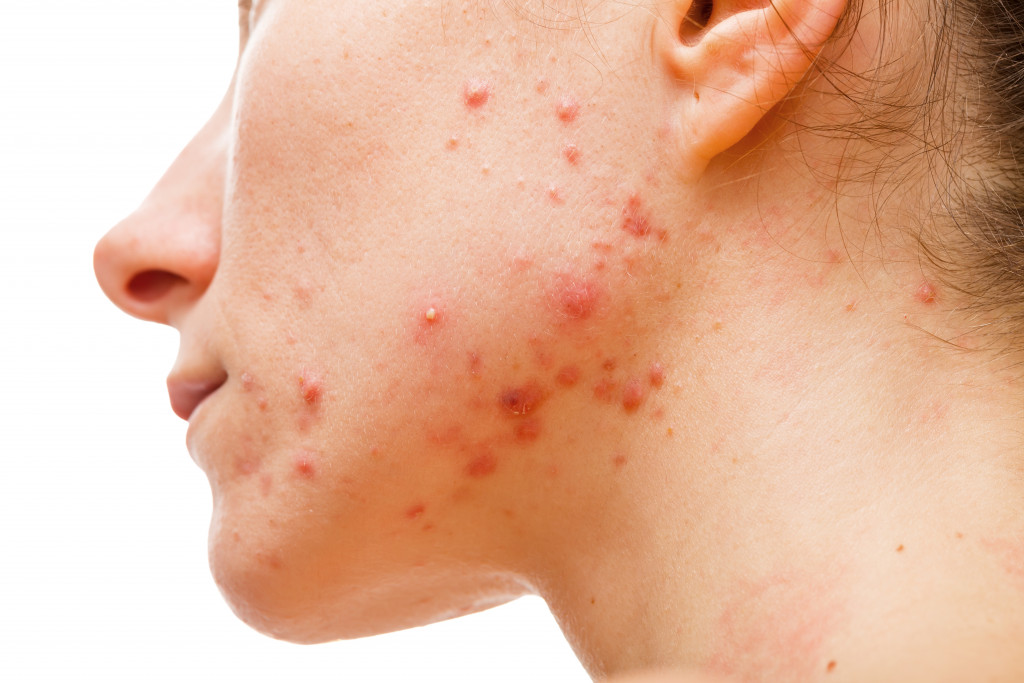- Acne is a common skin condition that affects up to 50 million Americans annually.
- Select the right products for your individual skin type and consult a dermatologist or skin specialist if unsure.
- Consider professional acne removal treatments.
- Limit sun exposure and avoid touching, picking, or popping any pimples.
- Manage stress levels to reduce flare-ups.
You’re not alone in your battle against acne. According to the American Academy of Dermatology, acne is the most common skin condition in the United States, affecting up to 50 million Americans annually. Fortunately, you can take steps to get ahead of and manage your acne. Here are five practical tips for managing acne to feel better about yourself and enjoy clear skin.
1. Select the Right Products for Your Skin Type
The first step in managing your acne is selecting products that suit your individual skin type. If you’re unsure of your skin type, consider consulting the advice of a dermatologist or skin specialist to help you select the right products for your individual needs.
Here are some suggestions for skincare products for every skin type:
For Oily Skin
If you have oily skin, the key is to look for products that are oil-free and non-comedogenic. Opt for cleansers that won’t strip away your skin’s natural oils but will keep excess sebum in check. Look for light, water-based moisturizers that won’t clog pores, and opt for oil-free foundations or tinted moisturizers instead of heavy coverage formulas. Choose blotting papers to help keep the shine in check during the day. Consider using lightweight serums with ingredients like niacinamide or hyaluronic acid, which can help reduce breakouts and combat excess oil.
For Combination Skin
Combination skin can be tricky to manage, so it’s important to find the right balance of products. Start by choosing a gentle cleanser that won’t strip away natural oils but will help keep excess sebum in check. Look for lightweight, oil-free moisturizers and opt for tinted moisturizers or light-coverage foundations instead of full-coverage formulas. Consider using serums with ingredients like niacinamide or hyaluronic acid, which can help reduce breakouts without over-drying your skin. Lastly, choose blotting papers to help keep the shine in check during the day if needed.
For Dry Skin
If you have dry skin, look for products that are hydrating and non-comedogenic. Choose gentle cleansers that won’t strip away your skin’s natural oils, and look for oil-free moisturizers that are rich in humectants like glycerin or hyaluronic acid. Opt for full-coverage foundations or tinted moisturizers that provide hydration without clogging pores. Consider using a nighttime serum with antioxidants to help repair skin damage and lock in moisture overnight.
For Sensitive Skin
Choosing products specifically designed for your needs is essential if you have sensitive skin. Start by selecting gentle cleansers formulated with calming ingredients like aloe vera, oatmeal, or chamomile. Look for non-comedogenic lotions and creams with soothing ingredients like cucumber extract or green tea, and opt for light-coverage foundations or tinted moisturizers instead of heavy-coverage formulas. Choose blotting papers to help keep the shine in check during the day if needed, and look for a nighttime serum with antioxidants that can help protect the skin without irritating it.
2. Consider Acne Removal Treatments

Professional acne removal may be a good option if you’re looking for more advanced solutions. These treatments can help reduce the appearance of blemishes and encourage healthy skin cell turnover. Professional treatments are typically performed by dermatologists or skin specialists and can be tailored to meet your individual needs. Depending on the severity of your acne, more than one treatment may be recommended. Your dermatologist can also provide you with more information about the risks and benefits of these treatments.
3. Limit Sun Exposure
Too much sun exposure can worsen acne, so limiting your time in the sun is important, especially during peak hours. Always wear sunscreen with an SPF of 30 or higher and a wide-brimmed hat when going outside for extended periods. Sunscreen can help protect your skin from sun damage and decrease inflammation.
4. Avoid Touching, Picking, and Popping Pimples

It can be tempting to pick at or pop pimples, but resisting this urge is important because it can lead to infection and scarring. If you feel like you need to touch the area, use clean hands and gently dab the affected area with a warm compress instead of picking at it.
5. Manage Stress to Reduce Flare-Ups
Stress can play a huge role in acne flare-ups, so it’s important to find ways to manage and reduce stress levels. Consider incorporating stress management techniques such as yoga, meditation, or exercise into your daily routine. You may also want to change your diet by reducing processed foods and adding more fruits, vegetables, lean proteins, and healthy fats into your meals.
In Summary
Having acne can be frustrating, but with the right approach, you can take control of your skin health. Following these five practical tips for managing your acne can help you achieve clearer skin and better overall wellness. Keep an open mind when exploring different products and treatments; what works for one person may not work for you! Be patient and give yourself time to find your best skincare routine. With determination and consistency, you can have beautiful, clear skin that radiates confidence!



















